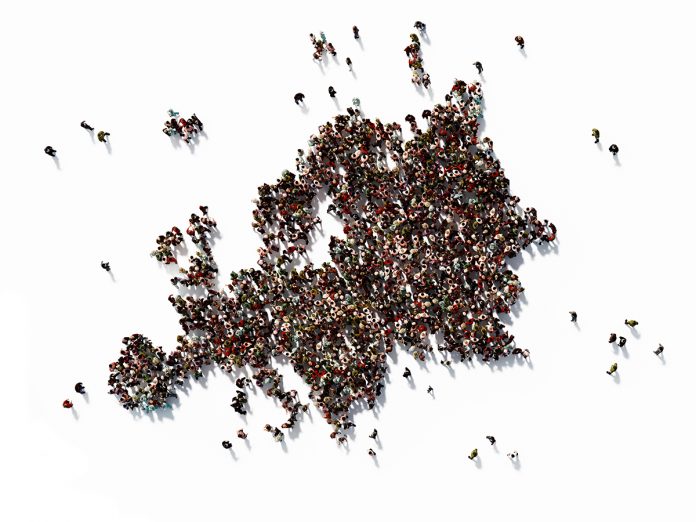
JPND, the largest global collaborative initiative for neurodegenerative disease research, creates a major impact on neurodegenerative research funding in Europe
JPND’s unique programme enables the 30 participating countries1 to collaborate on tackling the challenge of age-related neurodegenerative disease (ND).
JPND is a non-binding collaboration relying on trust among its members who engage voluntarily on a shared vision, a reactive management structure and a common Strategic Research and Innovation agenda (SRIA).
Four bodies for a smooth and efficient management
The management structure of the JPND initiative comprises four bodies: a Management Board, an Executive Board, a Scientific Advisory Board (SAB) and a Secretariat. The Management Board is the decision-making body. It seeks advice from the SAB on the SRIA and related matters. The Management board elects a Chair and a Vice Chair to coordinate the activities of JPND. The Executive Board supports the Management Board in all aspects concerning the preparation and implementation of decisions. The Secretariat organises the day-to-day management of the different structures and implements tasks assigned to it by the Management Board and the Executive Board.
The JPND Management bodies exert their mandate with the utmost regard to transparency and fairness. Decisions are governed by equal treatment (one country, one vote) and take into account all ethically relevant aspects.
Transnational actions to promote strategic alignment of research across Europe
Based on the SRIA, JPND members have developed an implementation plan that is regularly updated, prioritising the topics that will be addressed. Every year, JPND member countries agree on one or several topics. The implementation of these topics is supported by alignment action initiatives, international working group calls and joint transnational calls.
JPND is promoting the strategic alignment of research across Europe though a number of actions for example, longitudinal cohorts, imaging infrastructures and public patient involvement.
JPND supports the organisation of international working groups through calls for proposals intended for the scientific community. The results of these international working groups enable the identification of the needs and the gaps that will consequently allow JPND to better target its future actions that are mainly supported by its annual joint transnational calls.
JPND funding: a “virtual common pot”
Since the very beginning, JPND has regularly received the support of the European Commission (EC). To achieve greater consistency with the strategies and actions of JPND and to maintain a certain level of sustainability, the JPND management has been supported through dedicated coordination and support actions funding by the 7th and 8th EC work programme (Jumpahead and JPsustaiND).
Concerning the international working group and joint transnational calls, JPND supports highly competitive transnational collaborative projects that link research teams from several countries by juxtaposing large national research grants. In doing so, JPND has created a virtual common pot that efficiently supports each team of researchers towards a shared objective. Each JPND country engages voluntarily and on a variable-geometry basis according to her own national priorities. Interested countries participating in these calls earmark a dedicated budget.
Research projects are selected by an international and independent common review board comprising recognised scientific experts from all participating countries. From this, a ranking list, based on scientific excellence, is provided. Selected national teams will then receive the budget from their respective countries. This unique alignment strategy allows for a major leverage effect on the total amount of funds each research programme can receive, largely of €1 million. The funds that a JPND member country earmarks for joint transnational calls can be allocated only to research teams based within that country.
As JPND projects are by definition multi-national, some projects, albeit being ranked high in excellence, cannot be funded because the country of one or more of the project’s partners did not earmark enough budget to fund its local teams. This is where the EC’s top-up fund scheme enabled by its co-funded partnerships (ERANET Cofunded calls: JPco-fuND and JPco-fuND 2) allows to bypass this limitation and to significantly increase the number of supported teams. This EC common top-up funding can be allocated to any country to fill the remaining gaps in the ranking list and increase the number of highly-ranked supported projects.
“There are very high numbers of people with devastating brain diseases such as various forms of dementia and other neurodegenerative disorders. Patients and their families often suffer for years, and public funding for research into these diseases is indispensable for fighting them. JPND is our best chance to jointly and globally act and to follow our common aim,” says, PD Dr Marlies Dorlöchter, DLR Programme Management Agency, Germany and JPND Executive Board member.
A major impact on neurodegenerative research funding in Europe
As of today, JPND has funded some 121 research projects, gathering more than 600 research teams, representing around €175 million of funding. More than 4,800 individual research teams have applied to the different JPND joint transnational calls. JPND has mapped the current landscape in neurodegenerative disease research amongst member states in 2011 and 2016 in terms of funding. In 2016, the total research portfolio was calculated at €2,217 million (€566 million/year): a 53% increase on overall annual investment reported in 2011 (€370 million/year). Annual spending on investments >€500k increased by 55% (€150 million/year), with a similar increase (48%, €46 million/year) observed for investments <€500k since 2011.
Notably since 2011, an approximate two-fold increase in annual spending on clinical and health & social care research as a proportion of total funding was reported, with a small decrease in basic research spend. Greater involvement of JPND member countries in larger research projects was observed, with 81% of countries contributing to at least one investment >€500k, representing a 15% increase from 2011.
Clearly, JPND calls were a major factor in this change, achieving its primary goal to increase coordination and reduce fragmentation in Europe and beyond.
References
- These include twenty-three EU Member States (Austria, Belgium, Bulgaria, Croatia, Czech Republic, Denmark, Finland, France, Germany, Greece, Hungary, Ireland, Italy, Luxembourg, Netherlands, Poland, Portugal, Romania, Slovak Republic, Slovenia, Spain, Sweden, United Kingdom) four Associated Countries (Albania, Israel, Norway and Turkey) and three Partner Countries (Australia, Canada and Switzerland). In 2018, a collaboration with the National Institute of Ageing (NIH) in the US was realised, which will be renewed in 2020.
JPCOFUND –
Grant agreement ID: 643417
JPSUSTAIND –
Grant agreement ID/ 681043
JPCOFUND2 –
Grant agreement ID: 825664
@JPNDEurope
Please note: This is a commercial profile










